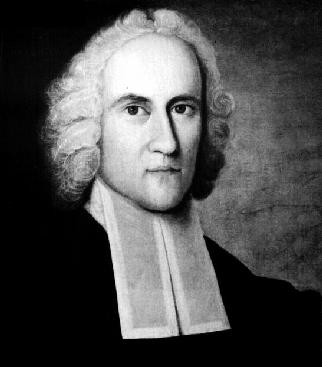 I finished Monday a project begun a long time ago (see here and here), the reading of Jonathan Edwards’ Treatise Concerning Religious Affections. Edwards is nothing if not thorough. And he is zealous to buttress his assertions with ample reference to Scripture. So, the work is wordy. But that wordiness is no slam against its worth. I’ve reflected extensively on this before, so no need here to repeat my thoughts.
I finished Monday a project begun a long time ago (see here and here), the reading of Jonathan Edwards’ Treatise Concerning Religious Affections. Edwards is nothing if not thorough. And he is zealous to buttress his assertions with ample reference to Scripture. So, the work is wordy. But that wordiness is no slam against its worth. I’ve reflected extensively on this before, so no need here to repeat my thoughts.
I did not wish to leave the book without emphasizing the 12th sign of the work of God’s grace in the life of a professor of Christianity. His point here is that the major evidence for the reality of the work of God’s grace in our lives and others is the fruit of Christ-likeness we display subsequent to our profession of faith. It is our practice, the fruit, that reveals us and others for who we are.
Edwards says this:
“From what has been said it is manifest, that Christian practice or a holy life is a great and distinguishing sign of true and saving grace. But I may go further, and assert, that it is the chief of all the signs of grace, both as an evidence of the sincerity of professors unto others, and also to their own consciences.”
and this:
“Christ nowhere says, ye shall know the tree by its leaves or flowers, or ye shall know men by their talk, or ye shall know them by the good story they tell of their experiences, or ye shall know them by the manner and air of their speaking, and emphasis and pathos of expression, or by their speaking feelingly, or by making a very great show by abundance of talk, or by many tears and affectionate expressions, or by the affections ye feel in your hearts towards them: but by their fruits shall ye know them; the tree is known by its fruit; every tree is known by its own fruit.”
It is for these reasons that when I first hear of someone’s ‘conversion’, my rejoicing is tentative. I only believe what I hear when the fruit of what is expressed is revealed, and that takes time.
But what fruit do we look for? Is it perfect compliance to the law of God?
Hardly.
I read also this morning on ParadoxUganda of a man who during his marriage had pursued two affairs. Can we say that this man is truly saved? Given what is said here about his testimony before his church, we can believe he is:
“A primary school head teacher, who looked familiar to me but whom I do not really know, stood up front with his Bible, and proceeded to give the most beautiful testimony of repentance I have ever seen in any church. He began by saying that though he had become a Christian in 1992, he felt he was truly being born again today. He read several Scriptures to show that he needed to repent to God, to the church, to his children, and to his wife. Then instead of the vague “If I have done you any wrong please forgive me” kind of weak semi-repentance, he boldly told his story, saying that he had pursued two extra-marital sexual relationships over the last few years, and describing the terrible impact on his wife, and on his life. He actually got down on his knees, and his wife came up front, and when he asked for her forgiveness she granted it. The elders came forward and prayed for both of them, and their young child. Bhiwa hugged the man so hard he lifted him off his feet, and the women in the congregation were cheering they were so amazed. When it was all over the wife stayed up and asked if she could sing. She was too overcome to speak, but she stood in front of the church and sang solo a song about Jesus on the cross while a tear rolled down her cheek. Then in the prayer request time three other men stood up, none with specific repentances like this but all three asking the church to pray that they would be convicted by the Spirit and change as this man had!”
I want to see in a person a pursuit after godly behavior. But that pursuit will never be perfect. It must be conjoined with a regular repentance and a continual re-apprehension of grace.
That is the fruit of true conversion.
